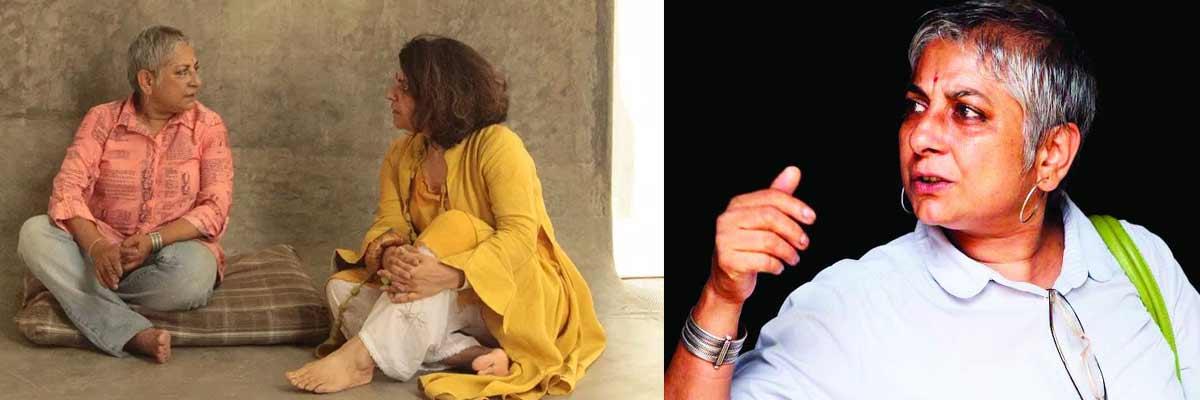We need to get back our diversity: Kochi-Muziris Biennale curator Anita Dubey By Trisha Mukherjee

India has always been the land of multiplicities, and the fourth edition of the Kochi Muziris Biennale, which opened here on Wednesday, is a bittersweet awakening to the possibility that the countrys fundamental spirit to embrace these differences may be getting lost
Kochi: India has always been the land of multiplicities, and the fourth edition of the Kochi Muziris Biennale, which opened here on Wednesday, is a bitter-sweet awakening to the possibility that the country's fundamental spirit to embrace these differences may be getting lost. Themed “Possibilities of a Non-Alienated Life”, the 108-day art event features renowned contemporary artists like Anju Dodiya and Shilpa Guta and B V Suresh. It also gives space to artists who have risen from the ground to discover a voice of their own – such as Kolkata-based auto rickshaw driver Bapi Das, tribal couple Durgabai and Subhash Vyam from Madhya Pradesh and Dalit artist V V Vinu from a village in the suburbs of Kochi.
“We must realise that differences can co-exist. We don't need exhibitions that have a kind of mono-culture. Any kind of mono-culture is killing us. We need to get back our diversity,” said Anita Dube, curator of the Biennale. Dube, an artist herself, said that it is important that the Biennale is happening at “this historic junction in time, not 10 years before, not 10 years later”. “I really want to open up as many possibilities for us to feel healthier and to feel better. What we are facing in our country right now, that is important to how I have conceived the Biennale,” she said. The 60-year-old artist has breathed life into the city's architectural spaces by putting together clusters of exhibitions which were conceived as fragments.
She has sewn independent artistic ideas to deliver a narrative that attempts to uphold the relevance of inclusivity in the “politically dark times” that we live in. Nothing represents the present intolerant India better than B V Suresh's “Canes of Wrath”. The very contemporary installation -- ahead of the 2019 elections -- is eerie in its suggestions of the disturbing recent past and the possibilities, if unchecked, of the turn events may take, for the worse. With walls lined with laathis that alternatively hit the ground, the work desperately calls out for attention to the ongoing spree of mob vigilantism, almost transporting the viewers to the crime scenes.
Perhaps aware of how Suresh's spine-chilling work might leave the heart and mind anxious, Dube has devised what is clearly a recuperative mechanism for viewers in the form of works such as the Gond art (tribal art from MP) installation by Durgabai and Subhash Shyam. When Dube said not an inch on the walls was left uncovered, she isn't exaggerating. Both recognized artists from the Gond School of Painting, the Shyams have covered their art site, from ceiling to floor, with wall-based installations in the form of wood cut-outs to tell stories from their tribal traditional folklore in the language of Gond. “It is a world full of animals and plants…full of stories from their Dalit lives. This is very different from the kind of aesthetics we have embraced universally," the curator said. While the tribal couple's work might be a refreshing break from the unkind realities of the times, Dube's intention behind making the project a part of the Biennale was more than just offering a beautiful artwork.
She wants to make a point -- that there is no hierarchy in art. “What I have tried to do is to mix up all kinds of styles and languages. There is no hierarchy. None at all. I am not taking contemporary art as top of the hierarchy. I am not letting its aesthetics overpower,” Dube said. The works by B V Suresh, and Durgabai and Subhash Shyam are among the 95 Indian and international artist projects, being showcased at the Biennale. Also lined up is an exciting set of ancillary events, including talks, presentations and discussions by artists and thinkers, film screenings as well as the Music of Muziris concert series featuring artists like the Three Seas Project, T M Krishna, Imphal Talkies, and Insurrections Ensemble among others. Slated to conclude on March 29 next year, the Biennale is being hosted across nine heritage venues -- Aspinwall House, Durbar Hall, Pepper House, Cabral Yard (Biennale Pavilion), David Hall, Kashi Town House, Uru Art Harbour, Dutch Warehouse, and Anand Warehouse.











